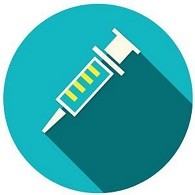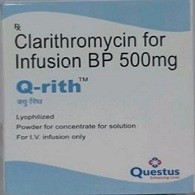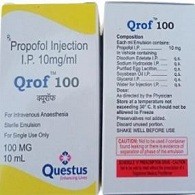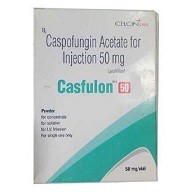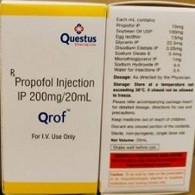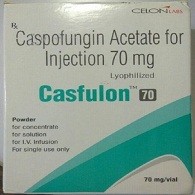

Glycote Injection 1ml
Inhouse product
Substitute Products
Glyolet 200mcg Injection
Unknown Manufacturer-
₹47.70
₹53.00 -
₹977.50
₹1,150.00 -
₹61.88
₹72.80 -
₹7,760.00
₹9,700.00 -
₹123.76
₹145.60 -
₹7,912.00
₹9,890.00
Glycote Injection 1ml
MANUFACTURER/
MARKETER
Vulcan Laboratories Pvt Ltd.
SALT COMPOSITION
Glycopyrrolate Injection USP 0.2mg/ml
PRODUCT INTRODUCTION
Glycopyrrolate Injection USP is a synthetic anticholinergic agent. Each 1 mL contains:
Glycopyrrolate, USP 0.2 mg
Water for Injection, USP q.s.
Benzyl Alcohol, NF 0.9% (preservative)
pH adjusted, when necessary, with hydrochloric acid and/or sodium hydroxide.
For Intramuscular (IM) or Intravenous (IV)
administration.
Glycopyrrolate is a quaternary ammonium salt with the
following chemical name: 3[(cyclopentylhydroxyphenylacetyl)oxy]-1,1-dimethyl
pyrrolidinium bromide. The molecular formula is C 19H 28BrNO 3 and the molecular
weight is 398.33.
INDICATIONS AND USAGE
Glycopyrrolate Injection is indicated for use as a
preoperative antimuscarinic to reduce salivary, tracheobronchial, and
pharyngeal secretions; to reduce the volume and free acidity of gastric
secretions; and to block cardiac vagal inhibitory reflexes during induction of
anesthesia and intubation. When indicated, Glycopyrrolate Injection may be used
intraoperatively to counteract surgically or drug-induced or vagal reflexes
associated arrhythmias. Glycopyrrolate protects against the peripheral
muscarinic effects (e.g., bradycardia and excessive secretions) of cholinergic
agents such as neostigmine and pyridostigmine given to reverse the
neuromuscular blockade due to non-depolarizing muscle relaxants.
WARNINGS
This
drug should be used with great caution, if at all, in patients with glaucoma.
Exposure
to excessive amounts of benzyl alcohol has been associated with toxicity
(hypotension, metabolic acidosis), particularly in neonates, and an increased
incidence of kernicterus, particularly in small preterm infants. There have
been rare reports of deaths, primarily in preterm infants, associated with
exposure to excessive amounts of benzyl alcohol. The amount of benzyl alcohol
from medications is usually considered negligible compared to that received in
flush solutions containing benzyl alcohol. Administration of high dosages of
medications containing this preservative must take into account the total
amount of benzyl alcohol administered. The amount of benzyl alcohol at which
toxicity may occur is not known. If the patient requires more than the
recommended dosages or other medications containing this preservative, the
practitioner must consider the daily metabolic load of benzyl alcohol from
these combined sources.
Glycopyrrolate Injection may produce drowsiness or blurred
vision. The patient should be cautioned regarding activities requiring mental
alertness such as operating a motor vehicle or other machinery or performing
hazardous work while taking this drug.
In addition, in the presence of fever, high environmental
temperature and/or during physical exercise, heat prostration can occur with
use of anticholinergic agents including glycopyrrolate (due to decreased
sweating), particularly in children and the elderly.
Diarrhea may be an early symptom of incomplete intestinal
obstruction, especially in patients with ileostomy or colostomy. In this
instance treatment with Glycopyrrolate Injection would be inappropriate and
possibly harmful.
Information for the Patient
Because Glycopyrrolate Injection may produce drowsiness
or blurred vision, the patient should be cautioned not to engage in activities
requiring mental alertness and/or visual acuity such as operating a motor
vehicle or other machinery, or performing hazardous work while taking this
drug.
The patient also should be
cautioned about the use of this drug during exercise or hot weather since
overheating may result in heat stroke.
The patient may experience a
possible sensitivity of the eyes to light.
Store at 20°C to 25°C (68°F to 77°F); excursions permitted between 15°-30°C (59°-86°F). [See USP Controlled Room Temperature].
Frequently Bought Products
Product Queries (0)
Login Or Registerto submit your questions to seller
Other Questions
No none asked to seller yet
Reviews & Ratings
-
₹47.70
₹53.00 -
₹977.50
₹1,150.00 -
₹61.88
₹72.80 -
₹7,760.00
₹9,700.00 -
₹123.76
₹145.60 -
₹7,912.00
₹9,890.00


